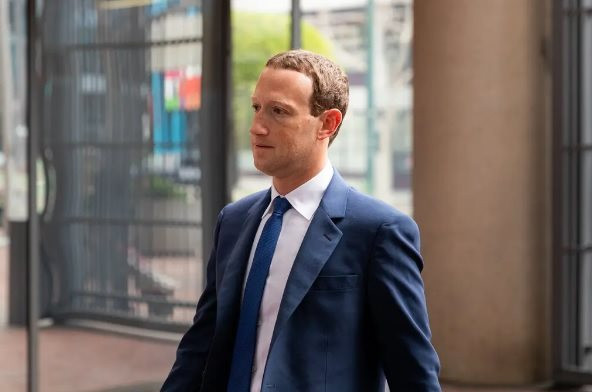The biggest storm in 19 years, Mark Zuckerberg opened up in a meeting with Meta employees around the world: I had to make very difficult decisions!
- Tram Ho

Mark Zuckerberg has spent the past nine months working through the “mess” as the company made major layoffs and struggled to convince people with its ambitious plan for virtual reality.
On Thursday, he told Meta employees about his plans to get the company “back on track”. During the meeting, Zuckerberg explained the recent layoffs and talked for the first time about how Meta’s vision and AI plans will blend with those for virtual reality or virtual universe.
Zuckerberg’s talk was an attempt to appease employees after the noisiest period in the company’s 19-year history. The CEO said he had to make “hard decisions” about layoffs with the goal of “building a better tech company” that could come up with better products, faster — something he did. believes that Meta is not doing well right now as the company swelled to more than 80,000 employees at the height of the pandemic.
“I want us to use this period to be a little more stable to improve and rebuild the culture of the company,” Zuckerberg said.
Zuckerberg made the key points during a half-hour speech to thousands of employees at Meta. This talk was also livestreamed live with thousands of employees around the world.
This was one of Meta’s rare plenary meetings over the past three years that was conducted in person and included keynotes from other company leaders including Andrew Bosworth – Chief Technology Officer and Chris Cox – Chief Executive Officer. product.
During the presentation, Cox detailed Meta’s plans for making improvements to Reels, Instagram’s short video product, to outdo TikTok, one of its most formidable competitors.
Many leaders also talked about Project 92 – a long-rumored social networking application with the idea of competiting with Twitter.
While Meta has been hard at work in AI for years, it’s still lagging behind competitors like Google and Microsoft to turn research into products for customers. Zuckerberg during the meeting also detailed his plan for how AI will help people across Meta’s apps including WhatApp, Messenger and Instagram.
He said that Meta will create AI models that can reach more people than rival companies’ products and will eventually aim to achieve the goal with the virtual universe.
“Democratizing access to this has a lot of value,” Zuckerberg said. “But it also aligns with the product vision of enabling so many different AIs instead of just trying to merge this into a single AI that will try to dominate everything.” He envisions AI assistants helping people “create content to express yourself and your ideas a lot better,” or perhaps some artificially intelligent version of “a coach.” give you advice, encouragement”.
AI tools can serve customers in products like WhatsApp, the globally popular messaging app that Meta has focused on turning into an important tool for business owners and customer service. And every business can use personalized AI algorithms. “Different people have different interests, and we will need a diverse range of AIs to represent all these different interests,” Zuckerberg said during the meeting.
To do that, the company is betting heavily on open-source technology — which means it will share what it learns about AI with other researchers who want to build their own algorithms with what they’ve learned. Meta is available. The company has spent billions of dollars over the past decade building AI-powered systems and engaging top researchers to work on the world’s most difficult computer science questions around AI.
However, Meta has been criticized for its approach. Researchers and politicians say opening AI algorithms to many others could spawn malicious, automated and intelligent systems that accelerate the spread of misinformation. Those sophisticated algorithms, critics say, need to be tightly controlled.
In his speech, Zuckerberg defended Meta’s strategy. He said open source software allows greater outside scrutiny of the technology as it can be seen by millions of technologists. He also said that working closely with outsider advances will make Meta’s platform better.
Zuckerberg also said he hopes for a world where people can build as many different AI programs as they want, instead of relying on a few programs offered by two or three big tech companies. But, Zuckerberg also insists that doesn’t mean Meta is backing away from the metaverse plans.
According to him, programs using next-generation AI technology could eventually help people build new virtual worlds and items. And he suggests that the company could include its AI assistant in a future version of smart glasses. (Meta released a pair of Ray-Ban smart glasses in 2021, though sales were disastrous.) He also reviewed Apple’s recently announced Vision Pro headset, $3,500 high-tech glasses that promise to usher in a new era of “spatial computing.”
Zuckerberg criticized the Vision Pro’s premium materials and high cost, noting that Meta has spent years reducing the price of its glasses to an upcoming version that will start at $500. “Their announcement really shows how different our visions and values are and what’s at stake in shaping this platform,” Zuckerberg said. “Our vision for the metaverse and presence is fundamentally social, and about people interacting and feeling closer in new amazing ways. By contrast, every demo Apple shows has it. person sitting on the couch alone.
Source: New York Times
Source : Genk
